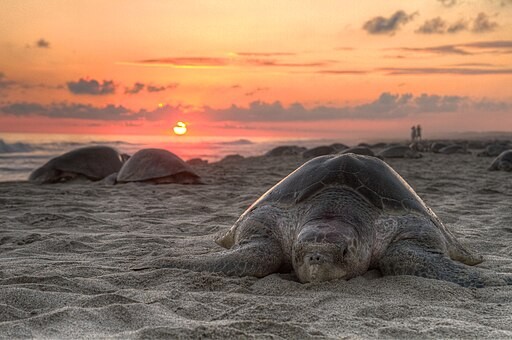Various species across the animal kingdom seem to have different ways of finding their way through life. For instance, birds migrate thousands of miles as the seasons change. Newly hatched sea turtles know how to reach the ocean by moonlight. Lioness mothers know how to nurse, protect, and teach their young. But, are these really instincts?

(Photo : Wikimedia Commons/ Claudio Giovenzana)
What is Instinct?
According to developmental psychobiologist Robert Lickliter from Florida International University, talking about instinct can only be possible by discussing acquired or learned behaviors. This means that instincts are actually behaviors influenced by factors that are not immediately obvious. In other words, they are an innate, predetermined, genetically formed tendency which seemed unexplainable.
For example, scientists have long thought that the behavior of duck, chicken, geese, and turkey hatchlings to identify and follow their mother, called imprinting, was an instinct. But a revolutionary discovery was made by developmental psychologist Gilbert Gottlieb in 1963.
Gottlieb discovered that duck hatchlings are attracted to their mother's vocalization because they make their own vocalizations inside the egg as an embryo. It is like priming their auditory systems before they are even born. As with the duckling example, other influences can happen before an animal is born, while it is still developing.
These duckling experiments pioneered a new insight of what experts mean by "instinct". They also explored whether hardwired behaviors exist at all. This nuance has been ignored by the classic debate on nature and nurture.
Behavioral neuroscientist Mark Blumberg introduced the concept of "species-typical behavior" such as a cat's ability to land on its feet as well as the monarch butterfly's ability to migrate thousands of miles. According to Blumberg, what people really mean when they say 'instinct' is actually a behavior that is reliably produced.
READ ALSO: [WATCH] Animal Instinct Reveals the Importance of Physical Distancing During a Viral Outbreak
How Does Instinct Work?
Counterarguments to this development perspective suggest that there is a range of behaviors that are specific to certain species. Another is that organisms have not had enough experiences at birth to determine a particular behavior.
However, as with the duck hatchling's vocalization, experiences can start before birth. Additionally, there are lots of behaviors which experts previously thought were instincts until science proved their inner mechanisms.
For instance, sea turtles can navigate the oceans because they might possess a magnetic compass which helps them follow complicated migratory pathways. That is not a hardwired instinct because it is influenced by the magnetic field of the Earth. Similarly, a cat would not know how to land on its feet if it underwent gestation and was born in space. These indicate that such behaviors are not simply coded in our genes. In such extraordinary behaviors, the force is simply hidden and nonexistent.
Another example is in the case of parasitic birds which trick other species into raising their chicks by putting their own eggs into the nest of another bird. It seems mysterious how a bird raised by a different species knows what species it belongs to, and who to mate with. If a host bird recognizes the parasitic chick as not its own, it will attack it. According to Blumberg, this is one possible explanation as to how parasitic birds know how to recognize its own species. Other studies suggest that the parasitic chick will hang out with its own species at night, although experts do not fully understand how this could be possible.
An animal's genes also do not predetermine behaviors the way instinct presumes. As described by Blumberg, the relationship between genes and behavior is highly indirect. With different types of new behaviors, neurons alter their firing patterns, leading to alterations in gene expression. In other words, it is like a bidirectional influence.
RELATED ARTICLE: Mammals' Predatory Ancestors Developed Killer Instinct That Drove Evolutionary Success, Study Suggests
Check out more news and information on Instinct in Science Times.














